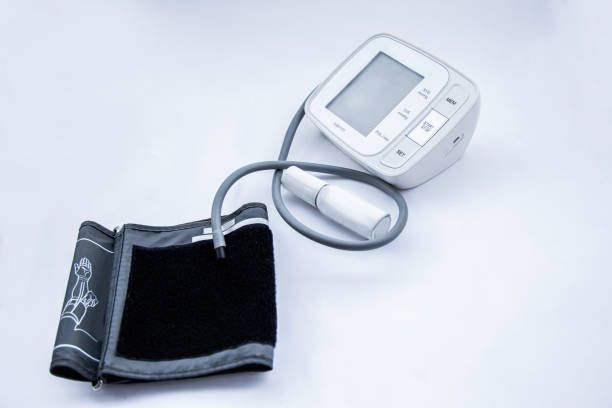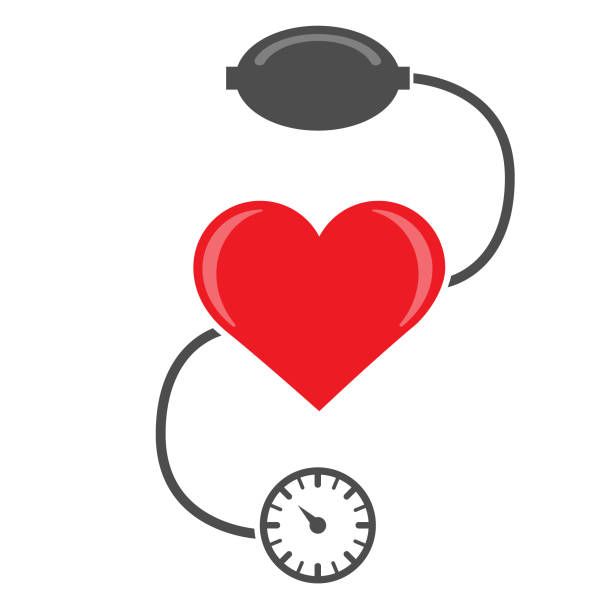I. Introduction
Blood pressure, the silent sentinel of our cardiovascular health, is a crucial measure often overlooked until it’s too late. Understanding this vital sign is not only a matter of awareness but also an essential step towards a healthier life. In this article, we will delve into the depths of normal blood pressure, uncovering its nuances and exploring the myriad ways to maintain it. So, fasten your seatbelts as we embark on this enlightening journey!
II. Understanding Blood Pressure
Blood pressure is the force of blood on artery walls, measured in mmHg with two values. Systolic pressure (the point when the heart beats) and diastolic pressure (the power when the heart rests between beats). A regular blood pressure reading is typically around 120/80 mmHg. Understanding these figures is akin to deciphering your body’s vital Morse code, allowing you to gauge your cardiovascular health effectively.

III. Health Implications of Abnormal Blood Pressure
- Hypertension (High Blood Pressure): Hypertension often goes unnoticed, damaging the heart and arteries and leading to severe complications like heart attacks and strokes.
- Hypotension (Low Blood Pressure): On the flip side, low blood pressure might seem benign but can cause dizziness, fainting, and organ damage due to inadequate blood supply.
Untreated abnormal blood pressure can wreak havoc on your body, emphasizing the criticality of regular check-ups.
IV. Factors Influencing Blood Pressure
- Genetics and Blood Pressure: Family history plays a significant role. If your parents had high blood pressure, you might be genetically predisposed.
- Lifestyle Factors: Your daily choices can lead to elevated blood pressure, including consuming too much sodium, not getting enough physical activity, experiencing chronic stress, and being overweight.
- Age and Blood Pressure Changes: As we age, our arteries tend to stiffen, leading to a natural rise in blood_pressure. Monitoring becomes crucial, especially in older people.
Understanding these factors empowers you to make proactive decisions for your well-being.

V. Diagnosing and Monitoring Blood Pressure
Regular check-ups are akin to health snapshots, providing insights into your cardiovascular well-being. Home blood pressure monitors, readily available today, offer the convenience of tracking your pressure in familiar surroundings. However, understanding anomalies like white-coat hypertension (elevated readings due to doctor’s office anxiety) and masked hypertension (regular lessons at the doctor’s, high elsewhere) ensures accurate interpretations.
VI. Maintaining Normal Blood Pressure
- Dietary Guidelines: Adopting a DASH diet, which includes fruits, vegetables, whole grains, and low-fat dairy, is an excellent way to start. Reducing sodium intake and eating potassium-rich foods additionally aids in regulating blood_pressure.
- Regular Physical Activity: Exercise is not just a luxury but a necessity. Aerobic activities like brisk walking, jogging, or swimming for at least 150 minutes a week enhance cardiovascular health and keep blood pressure in check.
- Stress Management Techniques: In today’s fast-paced world, stress is ubiquitous. Incorporating practices like meditation, yoga, and deep breathing techniques into your daily routine can significantly lower stress and, subsequently, blood_pressure.
- Limiting Alcohol and Caffeine Intake: Moderation is the key. Excessive alcohol and caffeine can elevate blood pressure. Being mindful of your consumption is a step towards normalcy.
- Importance of Quality Sleep: A good night’s sleep is restorative. Poor sleep patterns can disrupt hormonal balances, influencing blood_pressure. Prioritizing sleep is a cornerstone of overall health.
VII. Medical Interventions
Sometimes, lifestyle changes might not be enough, and that’s where medical interventions come into play. Various medications prescribed by healthcare professionals aim to control blood pressure effectively. It’s essential to follow the prescribed regimen diligently, being aware of possible side effects while communicating openly with your healthcare provider.
VIII. Prevention and Public Health Initiatives
Awareness is the first step towards prevention. Public health campaigns, educational programs in schools and workplaces, and governmental policies promoting healthier living create a supportive environment. Being part of community engagement initiatives, attending health seminars, and actively participating in such programs fosters a culture of wellness.

IX. Case Studies and Success Stories
Real-life stories inspire change. Reading about individuals who managed and overcame abnormal blood pressure through lifestyle modifications not only instills hope but also provides practical insights. These stories reinforce the notion that with determination and the right approach, anyone can achieve healthier blood_pressure.
X. Empowering Conclusion
In the realm of cardiovascular health, knowledge is indeed power. By understanding the intricacies of blood pressure, acknowledging the factors influencing it, and actively engaging in a healthier lifestyle, you take control of your well-being. Remember, your heart beats to the rhythm of your choices. As you embrace a balanced diet, regular exercise, and stress-free living, you not only maintain normal blood_pressure but also pave the way for a vibrant, healthier future.
XI. FAQs
Q1: What is the ideal blood pressure range?
A1: The ideal blood_pressure range is typically around 120/80 mmHg. However, it’s essential to consider individual health factors. Consult your healthcare provider for personalized guidance.
Q2: Can lifestyle changes alone lower high blood pressure?
A2: Yes, lifestyle changes like a healthy diet, regular exercise, stress management, and limiting alcohol and caffeine intake can significantly lower high blood_pressure. In some cases, medication might be necessary alongside these changes.
Q3: How often should I monitor my blood pressure at home?
A3: Monitor your blood_pressure at home several times a week at different times of the day. Consult your healthcare provider for tailored recommendations.
Q4: Is it normal for blood pressure to fluctuate throughout the day?
A4: Yes, blood_pressure can fluctuate naturally due to various factors such as physical activity, stress, and time of day. However, consistent abnormal readings should be discussed with a healthcare provider.
Q5: Can high blood pressure be prevented through diet alone?
A5: While a healthy diet significantly contributes to preventing high blood_pressure, it’s equally important to complement it with regular exercise, stress management, and limiting salt intake. Comprehensive lifestyle changes offer the best preventive approach.
Q6: Are there specific foods that can naturally lower blood pressure?
A6: Yes, several foods have been linked to lower blood_pressure, including leafy greens, berries, beets, oats, and fatty fish rich in omega-3 fatty acids. These foods, as part of a balanced diet, can contribute to better cardiovascular health.
Q7: Can stress at work or home directly impact blood pressure levels?
A7: Absolutely, chronic stress triggers the release of stress hormones, elevating blood_pressure. Regular relaxation techniques, mindfulness practices, and hobbies can mitigate stress and positively influence blood_pressure.
Q8: Is there a link between sleep quality and blood pressure?
A8: Poor sleep patterns like apnea and insomnia can raise blood_pressure. Develop healthy sleep habits to regulate blood_pressure and improve sleep quality.
Q9: Can weight loss help in reducing high blood pressure?
A9: Losing weight can improve cardiovascular health and lower high blood_pressure, particularly in the abdomen area.
Q10: Are there specific exercises tailored for lowering blood pressure?
A10: Aerobic exercises lower blood_pressure. A healthy heart requires 150 minutes of moderate exercise and muscle-strengthening activities per week.
Q11: Is caffeine consumption directly related to high blood pressure?
A11: While moderate caffeine intake is generally considered safe for most people, excessive consumption can temporarily raise blood_pressure. Sensitivity to caffeine varies, so it’s advisable to monitor your body’s response and limit intake if you notice a significant increase in blood_pressure.
Q12: Can herbal supplements effectively lower blood pressure?
A12: Some herbal supplements, such as hibiscus tea and garlic extract, have shown potential in reducing blood_pressure. However, it’s crucial to consult a healthcare provider before incorporating herbal supplements, as they can interact with medications or existing health conditions.
Q13: Does alcohol consumption affect blood pressure differently for men and women?
A13: Alcohol can have varying effects on men and women due to differences in body composition and metabolism. Moderate drinking may provide some cardiovascular advantages, but excessive consumption can cause high blood_pressure, particularly in those who are predisposed to the condition.
Q14: How does smoking impact blood pressure and overall heart health?
A14: Smoking damages blood vessels, making them narrower and less flexible, leading to higher blood_pressure. Additionally, the chemicals in tobacco smoke can harm the heart and increase the risk of heart disease. Quitting smoking is one of the most significant steps toward improving heart health and maintaining normal blood_pressure.
Q15: Can high blood pressure lead to other health complications apart from heart disease and stroke?
A15: Yes, untreated high blood_pressure can damage organs over time, leading to complications such as kidney disease, vision problems, and cognitive decline. Managing blood_pressure effectively reduces the risk of these complications, emphasizing the importance of regular monitoring and control.
These questions and answers provide further insights into the multifaceted world of blood_pressure, helping readers grasp the intricacies of this vital health indicator. Remember, staying informed and proactive is essential to a heart-healthy life.
Our guide simplifies blood pressure, offering practical solutions for maintaining normal levels. With knowledge and a proactive mindset, you can ensure a heart-healthy life. Remember, your heart health is in your hands!
Read also.. Body Fitness : Get Your Groove on for a Healthier You

